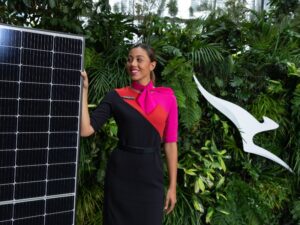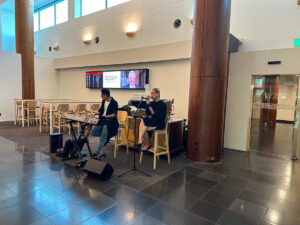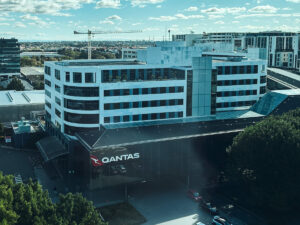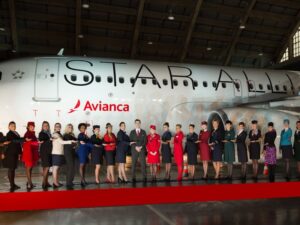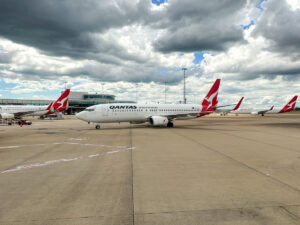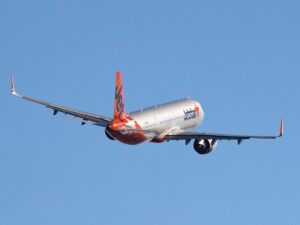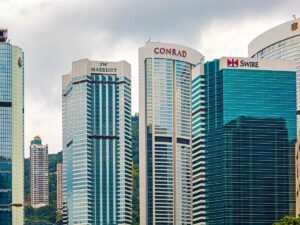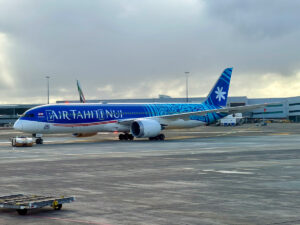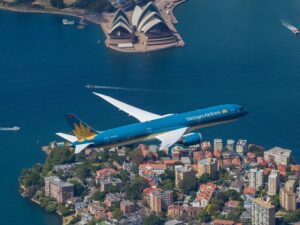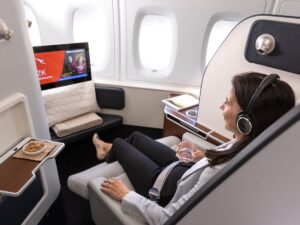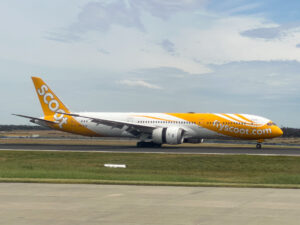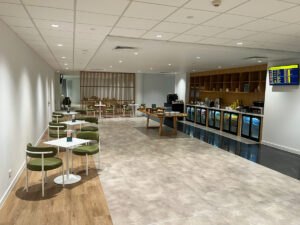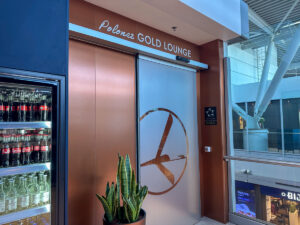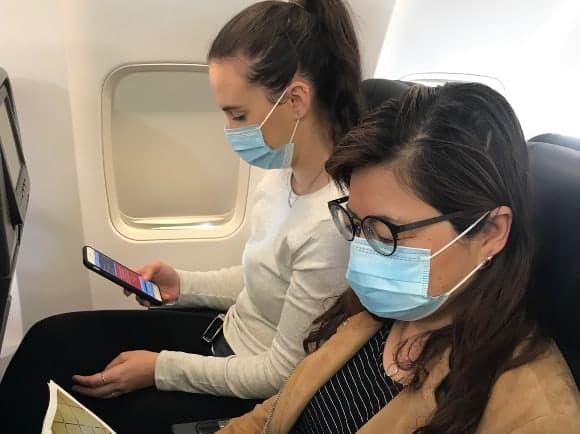
Wearing a face mask is now mandatory on all domestic flights within Australia, following a decision by National Cabinet last week.
Passengers and staff are also now required to wear a face mask in all Australian airports, including in airport lounges. Children under 12 years old are exempt from the requirement, as are people with other accepted exemptions for medical reasons. Masks may be removed briefly when eating or drinking, but must be worn at all other times.
Face masks have already been mandatory on domestic flights to or from Victoria for some time, but this is the first time the rule has been consistently applied nationwide.
Shortly after the announcement last Friday, airlines including Qantas updated their travel advice for passengers. Qantas, Jetstar and Virgin Australia all hand out complimentary face masks and sanitiser wipes at the boarding gate.
Rex has already had a policy of mandatory face masks for all passengers since the beginning of the pandemic. Rex does not provide complimentary face masks, but sells them at the check-in counter for $2 to passengers who require one.
Changes to international arrival caps, protocols
Last week, the Australian government also made face masks mandatory on all international flights to Australia. But this wasn’t the only change announced in response to the UK COVID-19 strain which is believed to be more infectious.
Passengers travelling to Australia on international flights are now required to return a recent, negative COVID-19 test before boarding the plane. This is in addition to the 14-day hotel quarantine requirement.
International airline crews are also now being tested on arrival, or every 7 days.
The Australian government has also temporarily reduced the international arrival caps until 15 February 2021. Until this time, the maximum number of passengers allowed to arrive each week will drop to:
- 1,505 passengers in NSW,
- 512 passengers in WA, and
- 500 passengers in QLD.
There are no changes to arrival caps in Victoria or SA, which have already been reduced. The ACT, meanwhile, will no longer accept a planned repatriation flight in late January.
The reduced arrival caps and other new measures are designed to reduce pressure on hotel quarantine and minimise the risk of the UK COVID-19 strain leaking into the Australian community.
“Our main issue is to keep Australians safe and to really make sure that this particular strain is not the one that becomes circulating in Australia,” Chief Medical Officer Professor Paul Kelly said.
“The reason is because it will be much more difficult to control. All of the things we’ve done in the past, all of those controls we’ve talked about in terms of test, trace, isolate, all of those personal measures, even some of the other measures we’ve had to do in certain times during this pandemic will become less effective if this virus was to establish itself in Australia. So that’s why we’re going hard and fast and strong,” Professor Kelly said.
However, the changes will make it even more difficult for the tens of thousands of Australians still currently trying to return home. Many have already had their flights cancelled as a result of the arrival cap reduction.
You can join the discussion of COVID-19 and its impact on travel on Australian Frequent Flyer’s Coronavirus & Travel forum.
